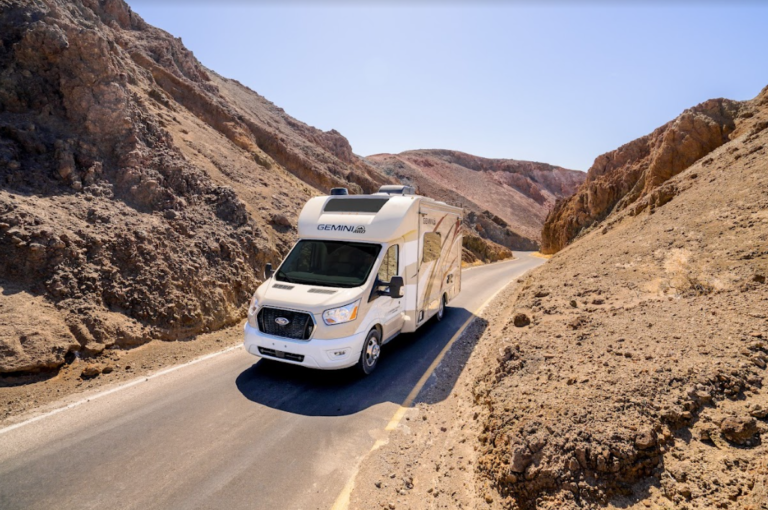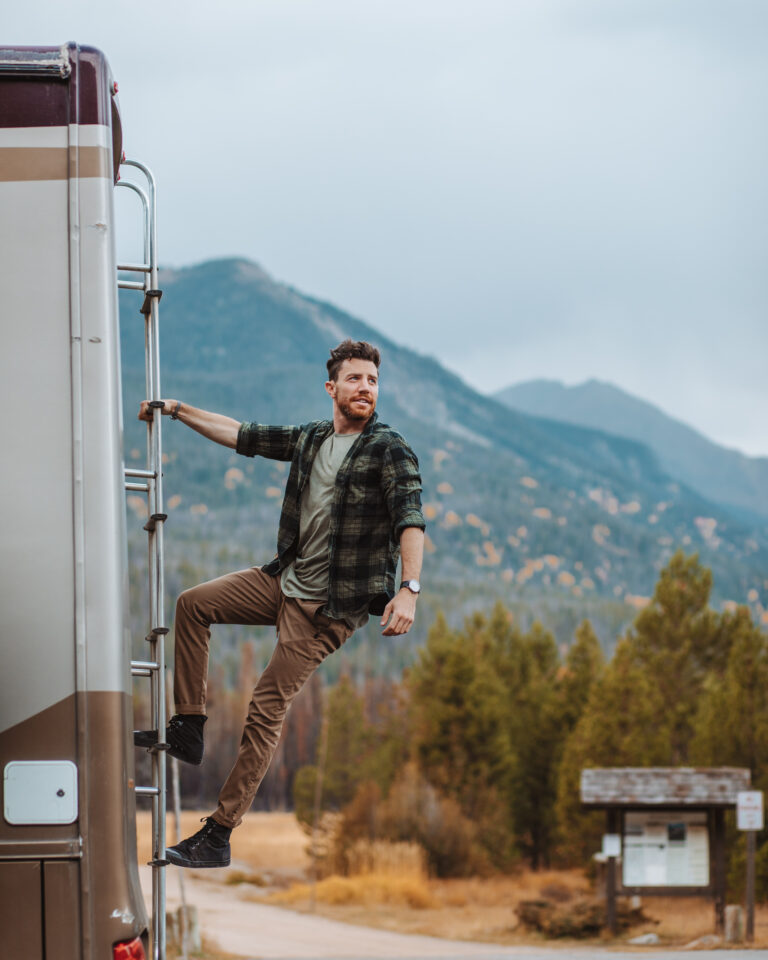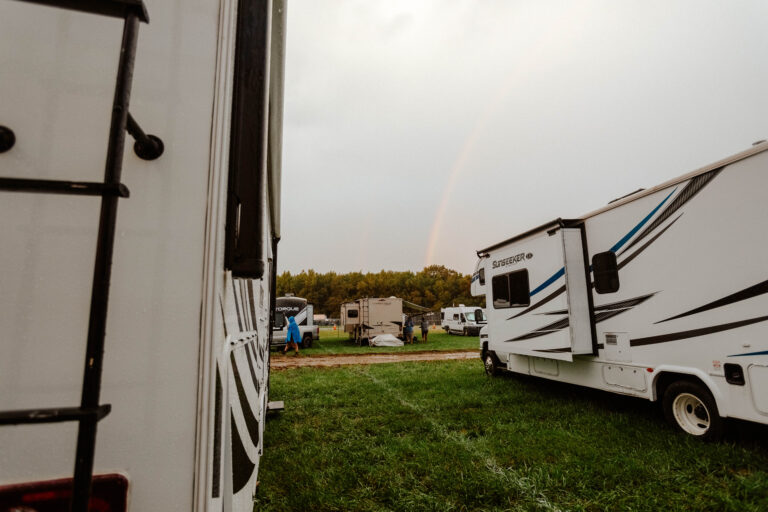
This post contains affiliate links.
No matter how well you prepare, RV mistakes happen. But knowing the most common mistakes ahead of time can help you be ready for them!
Common RV mistakes include not taking the time to get to know your RV before a trip, problems with planning, and overpacking. Let’s take a look at the mistakes new RV owners make most often and how to fix them (or avoid them altogether).
Not familiarizing yourself with your RV.
Get familiar with your RV before you go too far. It’s best to learn the ins and outs of your RV before you’re stranded on a highway at dusk, trying to figure out how to turn the lights on.
Take a while to read through the manual. Check out where your wipers, headlights, and other indicators are. Know how to see when your tanks are full, practice hooking up your electricity and water, and practice leveling and setting up your RV. Make note of the type and size of wipers and oil that your RV needs in case you need to buy some along the way.
Planning problems.
RVing requires a balance of good planning while leaving room for serendipitous adventure! You want to have an idea of what you will do with your days, but you don’t want to schedule every second. Make note of the things you definitely don’t want to miss, and maybe even make reservations or buy tickets for them ahead of time. But also leave flexible time for a spontaneous side visit or a lazy morning at camp.

Going too far.
You can’t carpe the diem every day — the reality is that the days when you move your RV will be hectic. You’ll need to pack up camp, drive to your destination, and set everything up again. You might not have the time or energy to do very much exploring once you get there.
Give yourself at least a day (two nights of camping) at each major stop on your trip. Also, consider limiting your driving to 300 miles a day or less. You’ll have more time to explore at each place, and you’ll be more rested and relaxed while you do so!
Spending too much.
Camping fees, restaurant meals, and entertainment costs can quickly add up if you’re not careful. Think realistically about your budget ahead of time, and write down all of your expected expenses. Add in an ample cushion for unexpected expenses as well.
It’s true that camping can be much more affordable than traveling via airplane and staying in hotels, but you’ll still want to have a (loose) budget in mind.
Overpacking.
One way to avoid overpacking is to ask yourself whether you use an item every single day at home. If not, you’re unlikely to miss it at your destination. Even some of the things you do use every day can probably be skipped for a short trip.
When you pack too much stuff into your RV, you’ll soon find your once-spacious rig claustrophobic and cluttered. You also face the risk of going over the weight rating.
Bring sensible clothing and shoes, sunscreen, and a towel, and you’ll probably be alright no matter where you’re going.
Besides, if you really run into an emergency, you can more than likely buy what you need at your destination.

Skipping the walk-around before leaving.
Whenever you’re about to move your RV, do one last check.
It’s easy to drive off with extended satellite antennas, external stairs, leveling blocks, hoses, and other items that you didn’t remember to pack safely back into your RV.
Always do a walk around the outside of your RV before driving off, or even just moving it over a space or two. If you’re really forgetful, you might even consider these handy RVminders.
Not figuring out the fridge.
Your RV refrigerator has different mechanics than the one in your kitchen at home. It can only work effectively if your rig is level. In fact, running it while it’s tilted might even damage the unit, resulting in a costly repair bill… and a heap of spoiled food!
Also, make sure to pack your food in your fridge and in your cupboards so that it doesn’t spill while your RV is in motion.
Not carefully checking for water damage on a regular basis.
RVs are very vulnerable to water damage because they have lots of seams and moving parts. In fact, that’s what eventually claims most RVs in their old age.
Get ahead of this by regularly checking your RV for early signs of water damage, which will allow you to make repairs before it’s too late.
Avoiding routine maintenance, including water damage checks.
This is one of the biggest and most dangerous mistakes owners can make! Make sure you keep up with regular maintenance just like you would your everyday car. This includes oil changes, tire rotations, and RV-specific chores like cleaning out your wastewater tanks and checking your air conditioning filters.
Along with keeping you safe, maintenance can help ensure your vehicle lives a long, healthy life with as few repair costs as possible.
RV mistakes happen to the best of us, but it’s all part of the adventure! With a little preparation, you can avoid some of the most common pitfalls on an RV journey.






